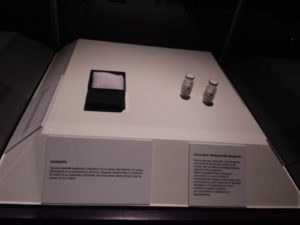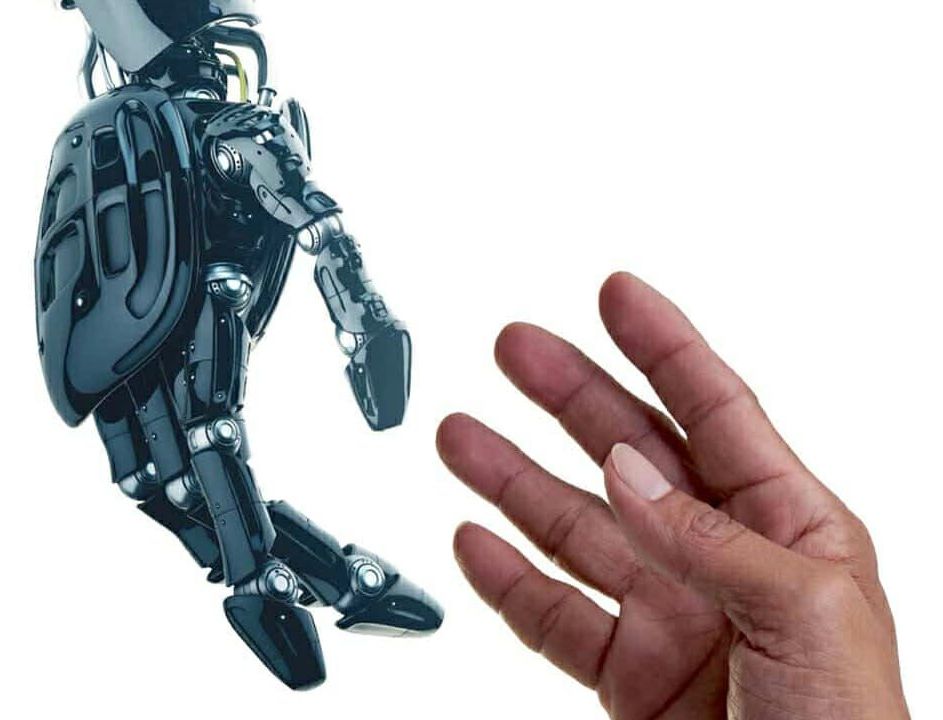How high economic inequality negatively impacts nearly every aspect of human well-being—as well as the health of the biosphere.




Congratulations to the Forest Organics team and their awesome new site — https://www.myforestorganics.com/

Perhaps physicists should leave human intuition at the laboratory door when designing quantum experiments too.
An Australian crew enlisted the help of a neural network — a type of artificial intelligence — to optimise the way they capture super-cold atoms.
Usually, physicists smoothly tune lasers and magnetic fields to gradually coax atoms into a cloud, according to study co-author Ben Buchler from the Australian National University.

Exciting visitor at the Real Bodies (https://www.realbodies.it/) exhibit!
The lovely Ms. Chiara Bordi (https://www.facebook.com/Chiara-Bordi-474572166390000/), Miss Italia 3rd place runner up (aka the “Bionic Beauty”) stopping by to visit our associates at HealthQE (www.healthqe.cloud), and QantiQa (https://www.qantiqa.com/), to test out their new Musyke device
Bio-mechanics and Bio-acoustics
Two critical components in the regeneration, repair, and rejuvenation equation, and part of the integrated age-reversal paradigm of Embrykinesis at Bioquark Inc.- (www.bioquark.com)

Join the largest community of machine learning (ML), deep learning, AI, data science, business analytics, BI, operations research, mathematical and statistical professionals: Sign up here. If instead, you are only interested in receiving our newsletter, you can subscribe here. There is no cost.
The full membership includes, in addition to the newsletter subscription:


Current brain-computer interface (BCI) research helps people who have lost the ability to affect their environment in ways many of us take for granted. Future BCIs may go beyond motor function, perhaps aiding with memory recall, decision-making, and other cognitive functions.
Have you ever studied a foreign language and wished you could upload the vocabulary lists directly into your brain so that you could retain them? Would you like to do mental math with the speed and accuracy of a calculator? Do you want a literal photographic memory? Well, these dreams are still the stuff of science fiction, but the brave new world of brain-computer interfaces, or BCI, is well on its way to making technological miracles of this sort a reality.
The story of BCI begins with the discovery of electrical signals emitted by the brain. In 1924, German scientist Hans Berger recorded the first electroencephalogram, or EEG, by placing electrodes under a person’s scalp. Although his research was at first met with derision, a whole new way to study the brain was born from his work. It is now well accepted that the human brain emits electric signals at a variety of frequencies currently known as brainwaves.
BCI researchers attempt to harness these signals to create some desired effect in the world outside the brain. In other words, BCI seeks to make things happen based on a thought in a person’s head. Actually, humans do this all the time when they decide to do anything. A person thinks, “I’m thirsty; I need a drink,” and then the brain sends a litany of instructions to the extremities that allows the person to pour a glass of water, lift it to their mouth, swallow the water, and so on. Most of us go through our days executing these kinds of actions, which require complex interaction between the body and brain, without giving them a second thought.

Publication science is struggling to keep up. “Research in this area is not fast-moving,” says Sara Schroter, a senior researcher at The BMJ. In a recent Nature opinion piece, Rennie called for rigorous studies to demonstrate the pros and cons of many new developments, including open peer review and preprints. In JAMA, he and Executive Managing Editor Annette Flanagin lamented that few people are studying “important issues and threats to the scientific enterprise, such as reproducibility, fake peer review, and predatory journals.”
Decades spent studying peer review, publication bias, and more have challenged the status quo, but journalologists say they have a long way to go.